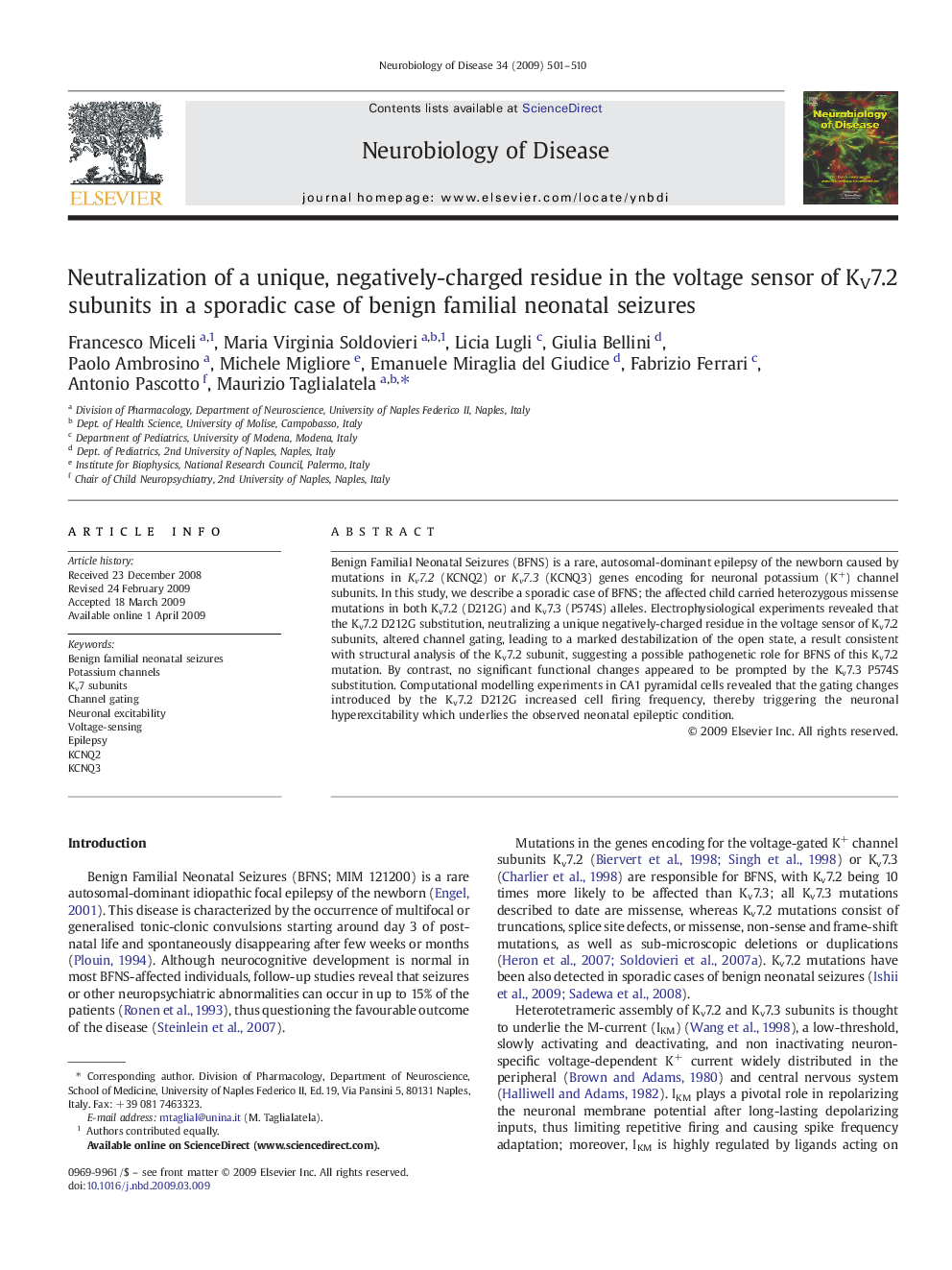| Article ID | Journal | Published Year | Pages | File Type |
|---|---|---|---|---|
| 3070229 | Neurobiology of Disease | 2009 | 10 Pages |
Abstract
Benign Familial Neonatal Seizures (BFNS) is a rare, autosomal-dominant epilepsy of the newborn caused by mutations in Kv7.2 (KCNQ2) or Kv7.3 (KCNQ3) genes encoding for neuronal potassium (K+) channel subunits. In this study, we describe a sporadic case of BFNS; the affected child carried heterozygous missense mutations in both Kv7.2 (D212G) and Kv7.3 (P574S) alleles. Electrophysiological experiments revealed that the Kv7.2 D212G substitution, neutralizing a unique negatively-charged residue in the voltage sensor of Kv7.2 subunits, altered channel gating, leading to a marked destabilization of the open state, a result consistent with structural analysis of the Kv7.2 subunit, suggesting a possible pathogenetic role for BFNS of this Kv7.2 mutation. By contrast, no significant functional changes appeared to be prompted by the Kv7.3 P574S substitution. Computational modelling experiments in CA1 pyramidal cells revealed that the gating changes introduced by the Kv7.2 D212G increased cell firing frequency, thereby triggering the neuronal hyperexcitability which underlies the observed neonatal epileptic condition.
Keywords
Related Topics
Life Sciences
Neuroscience
Neurology
Authors
Francesco Miceli, Maria Virginia Soldovieri, Licia Lugli, Giulia Bellini, Paolo Ambrosino, Michele Migliore, Emanuele Miraglia del Giudice, Fabrizio Ferrari, Antonio Pascotto, Maurizio Taglialatela,
